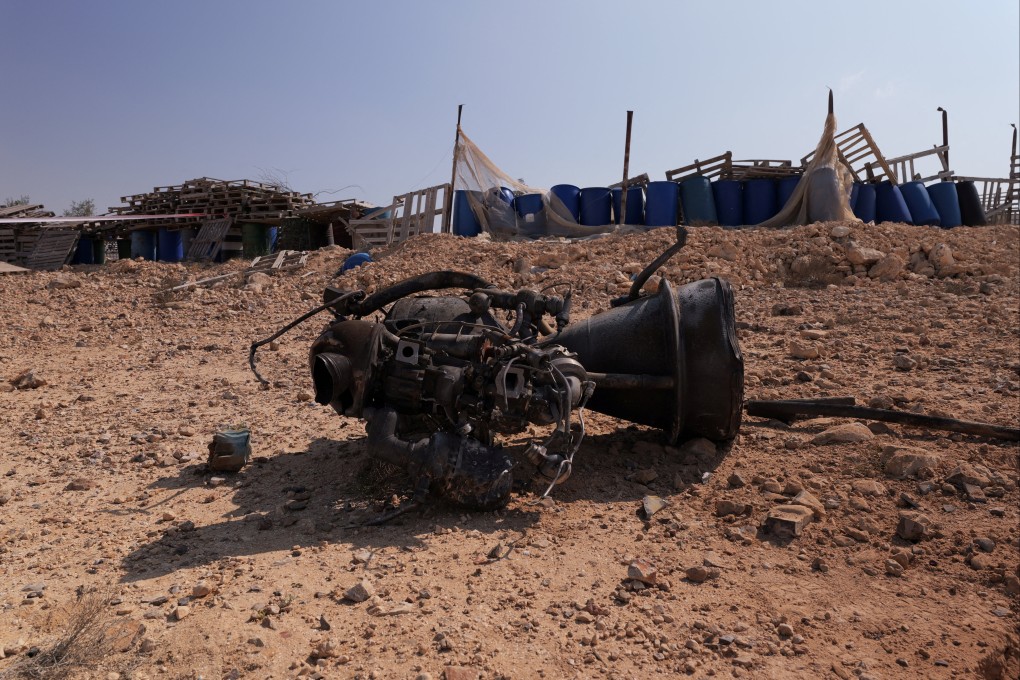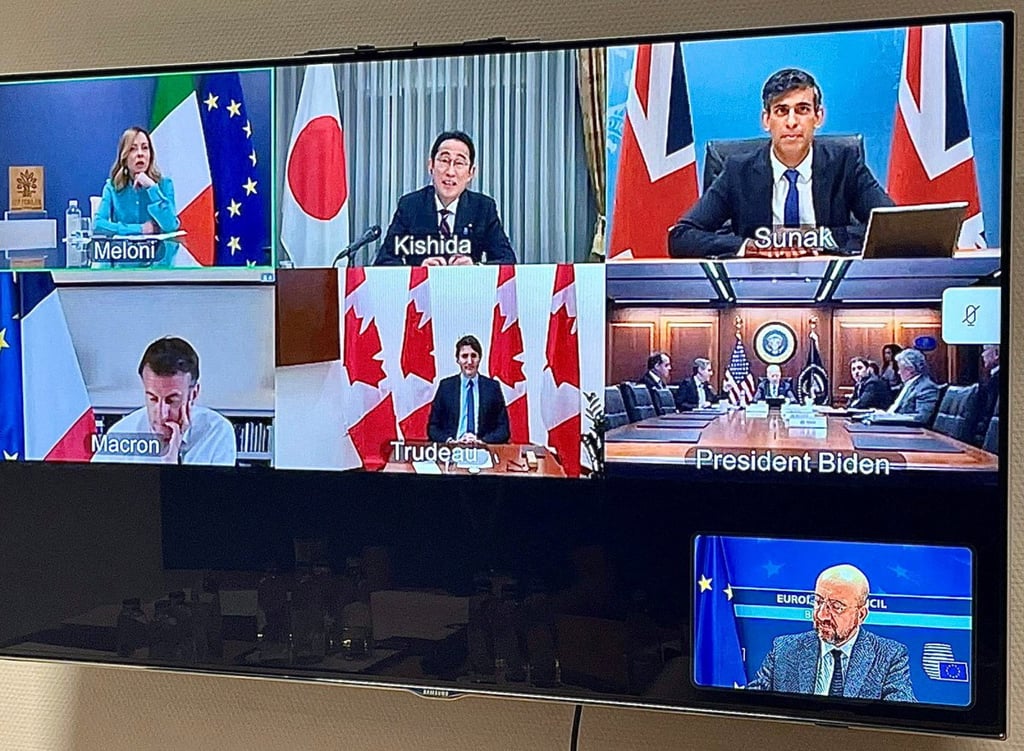G7 ‘ready to take measures’ after Iran’s Israel attack
- Group of Seven countries consider sanctions after Iran’s missile and drone attack on Israel
- Iran’s attack was revenge for an air strike on its embassy grounds in Damascus on April 1

G7 leaders offered their full support for Israel on Sunday following an attack by Iran, and said they were ready to “take further measures” in response to “further destabilising initiatives”.
In a statement following a video meeting, the leaders of the Group of Seven powers said they “unequivocally condemn in the strongest terms Iran’s direct and unprecedented attack against Israel”.
“We express our full solidarity and support to Israel and its people and reaffirm our commitment towards its security,” they said, in the statement published by the Italian G7 presidency.
“With its actions, Iran has further stepped toward the destabilisation of the region and risks provoking an uncontrollable regional escalation. This must be avoided.

“We will continue to work to stabilise the situation and avoid further escalation.